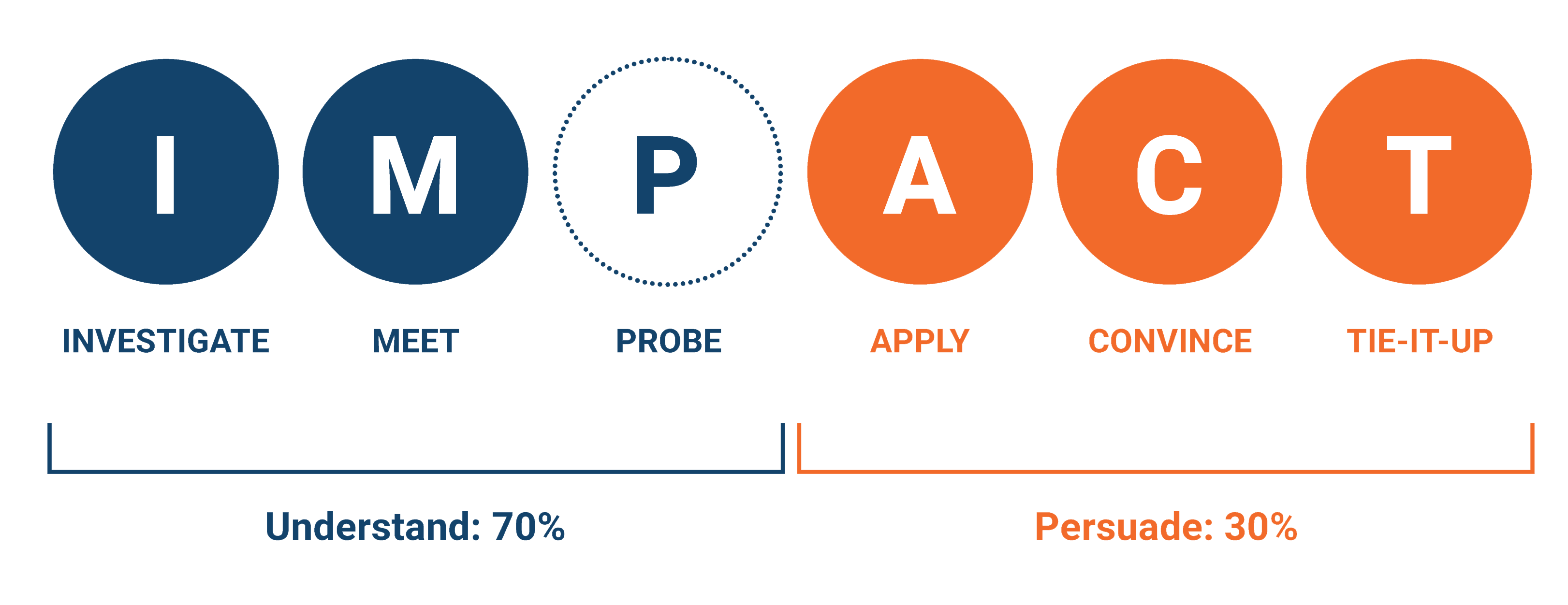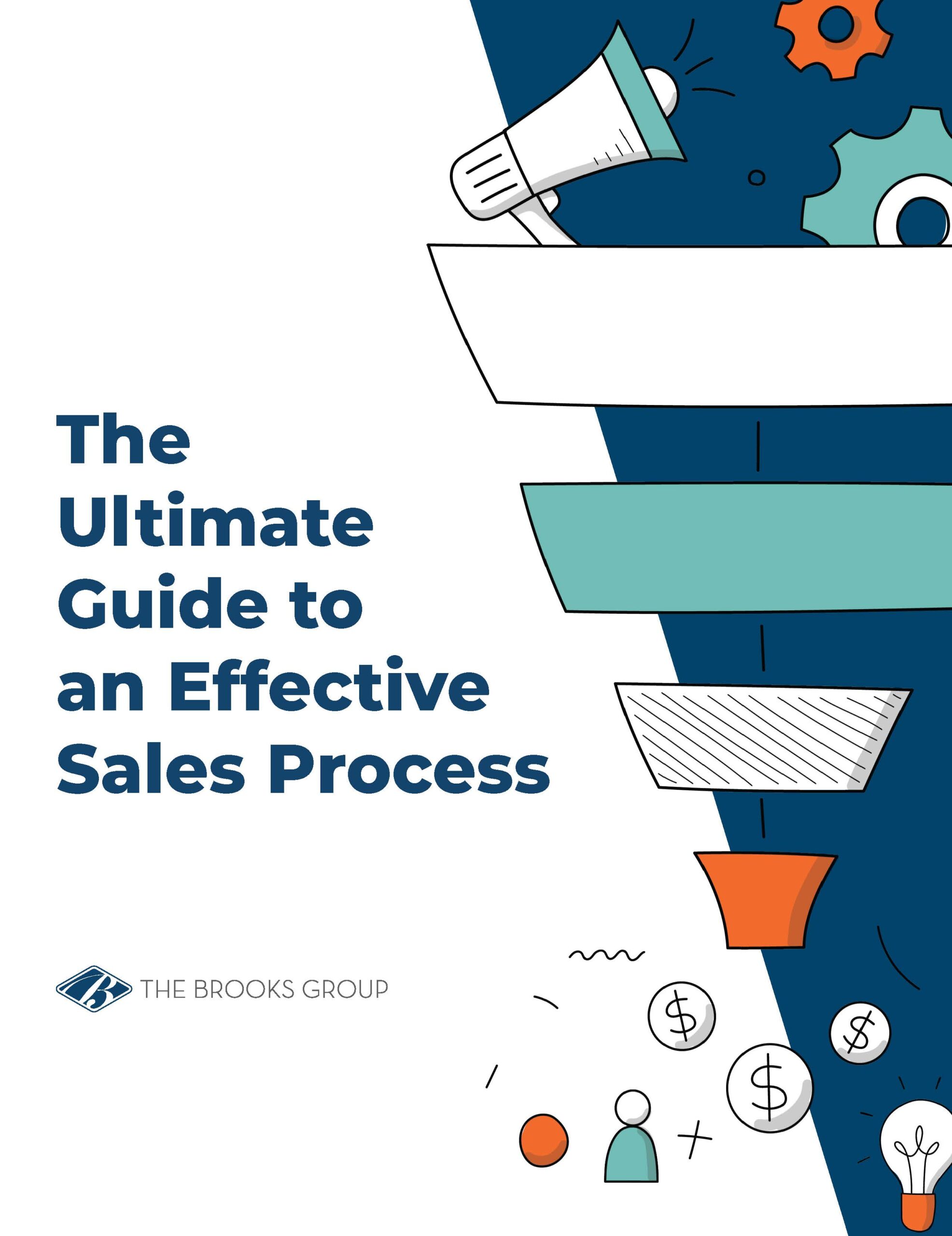But do your sellers follow it consistently? If not, you may see confusion, lackluster sales performance, and missed quotas.
That’s because sticking with a sales process correlates with success—and lack of adherence is a problem at many organizations.
New data from our Best Practices of High-Performing Sales Teams research report shows that 95% of teams who met or exceeded revenue goals followed their sales process all or most of the time, but only 69% of underperforming teams did. Sales teams that don’t follow their sales process consistently have difficulty meeting sales goals.
What do you do when your sellers don’t—or won’t—follow your processes?
This post will show you some of the reasons why sellers don’t follow a sales process and what you can do to get the team on board.
What Is Sales Process Adherence?
A sales process is an organization’s standard approach to closing deals. It’s a series of repeatable steps to move a prospect from the early stage of awareness to a sale.
Here at The Brooks Group, we recommend a six-step process known as IMPACT.

To comply, the salesperson must understand the process’s purpose and know how to follow the steps to get results.
Why Do Organizations Need Sales Process Adherence?
Sales process adherence means the team has a consistent framework for conducting business. It instills discipline, keeps sales professionals on track, and helps them follow the best route to winning business.
When salespeople adhere to your sales process, the team shares a common language and is more efficient and effective. Win rates go up and a higher percentage meet quota.
Having a sales process in place also allows you to track your team’s performance at every stage of the sales cycle and help them improve. Without a process, there’s no way for you to know what went wrong, where, when a deal is lost, or how to avoid that mistake in the future.
Big picture, a culture of sales process adherence nurtures and sustains your approach to new and returning business and aligns team activities to the organization’s short- and long-term growth objectives.
Why is Sales Process Adherence Important for Sales Performance?
In our report, Best Practices of High-Performing Sales Teams, we found sales teams that met or exceeded the previous year’s revenue goals are more likely to consistently follow their sales process, less likely to struggle across all stages of the sales process, and more likely to integrate their sales process into their CRM.
Successful Teams Adhere to Their Sales Process
95% of successful teams closely adhere to their sales process, but only 69% of underperforming teams do so. 83% of teams that rarely follow the sales process were behind goal last year.
Successful Teams Integrate Sales Process Into CRM
62% of successful teams integrate the sales process into their CRM; only 40% of underperforming teams do.
CRM Integration Drives Sales Process Adherence
89% of teams that have integrated their sales process into their CRM follow their sales process all or most of the time.
Why Don’t Sales Teams Follow Their Process?
Do you see this at your company?
You have a well-established sales process. Your sales team members know what to do because you’ve explained the steps, trained them, and provided documents or templates. But they don’t follow it—preferring their own home-grown methods.
Or the process is new. You’re reinforcing it, but maybe it’s not integrated into your CRM yet and folks have to remember the steps on their own. Your salespeople are sticking with their old ways and don’t quite trust that the new process is the best way.
There are many, many other reasons why your team isn’t adhering to your sales process:
- Your team doesn’t understand the process and how it works.
- The process isn’t fully and formally defined.
- The process isn’t well documented.
- People aren’t trained on the process or haven’t retained the sales training.
- People don’t agree with the process and think they can do better.
- The process is hard to follow or takes too much time.
- The process is outdated and doesn’t work with today’s tools or buyers.
- No one is responsible for reinforcing process adherence.
The outcome is that everyone does their own thing depending on their routine, habits, and feelings. Your sales professionals don’t follow the steps, and your process isn’t done right. This scenario leads to confusion, inefficiency, and missed quotas. But you can solve this with five straightforward tactics.
5 Tips to Help Your Team Follow Your Sales Process Consistently
Step 1: Investigate
Find out if the sales team understands the process. Dive into the issues that are keeping people from following the process, define the reasons, and address them.
Step 2: Communicate
Make sure your sales professionals understand your sales process and how it can help them reach their sales goals.
Step 3: Train
Incorporate sales process adherence into your sales training. Deliver detailed step-by-step instructions explaining how to complete the sales process effectively and consistently.
Step 4: Reinforce
Help your team stick with the process with sales training reinforcement. Your sales team is made up of individuals with different goals and motivators. For each, reinforce the benefits of adherence and the downside of winging it.
Step 5: Integrate
Make your sales process easy to follow by integrating it into your CRM. Instead of asking sales reps to leave the platform to enter information or track deals, bake the process into their workflow.
Have a Sales Process and Stick With It
Research shows successful sales teams consistently follow their sales process. The message is clear: Implementing a sales process, integrating it into your CRM, and reinforcing adherence is the path to success in 2024 and beyond.
Clearly defined, repeatable steps allow your sales team to meet prospects and customers where they are in the buying journey. Use this post to help your team stick to your sales process and improve performance.
Learn more about the award-winning IMPACT Selling® sales process
See how our award-winning IMPACT sales process training programs can improve sales performance.
Download Best Practices of High-Performing Sales Teams to see what the best sales teams do differently.
White Paper Download
The Ultimate Guide to an Effective Sales Process
In this guide, we’ll cover everything there is to know about using a sales process, and how to select the right sales process for your organization.





